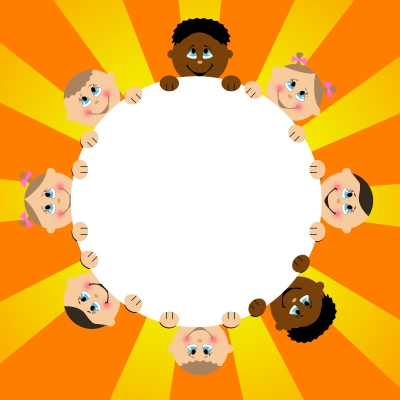Are Kids with Special Needs Different or Beautifully Unique?

Advocating and educating others about our kids with special needs is a full-time job. Today, guest blogger Rebekah Benimoff describes how the hard work of advocating sometimes clogs her parent filter.
Different or Beautifully Unique?
It started as a normal conversation. She asked if I’d like to donate to support Autism Speaks, and I said “Sure! It’s a good cause, and close to my heart.” It follows that questions would ensue. “Yes,” I replied, ”My son is on the autism spectrum.”
What’s Sensory Processing Disorder?
“What’s the autism spectrum?” she asked, surprised, but genuinely interested. So I explained that the kind of autism often thought of is not the only condition that affects person-to-person interaction, and that my son has a sensory processing disorder (SPD). I described what we deal with as the opposite of traditionally understood autism symptoms. Instead of drawing into himself, my son seeks constant sensory stimulation. He wants to be right next to me, climbing on me, touching my face, hanging on me—with no concept of personal space—all the time. To strangers he just looks like a very affectionate child. (I left out the fact that this mom sometimes feels a bit pummeled by love!)
“So, your son can communicate?”
Yes, in fact, he is continuously in a state of communicating. He needs constant input, although, blessedly, as he gets older I’ve been able to teach him to have some one-on-one time where he self-soothes or spends time with the cat, giving the humans in our household a much needed break.
The questions continued, even as my transaction ended. It’s natural, really, for people to be curious about differences. I shared that unless you knew my son well, his differences would not be obvious. He looks and behaves like a normal, active kid. He spins and jumps and climbs, and more than anything, lately, he dances. Everywhere.
The Difference Between SPD and ADHD?
And then the question that gets under my skin the most. “Do some people think he has ADHD?”
“Yes, sometimes they do. But as an educator who’s taught kids who have true ADHD, I knew from the beginning that my son did not.” Mentally, I work to stay off my soapbox, thinking that there are a lot of normal kids out there who are just as active as the kids I know with ADHD. Besides, ADHD is not just about kids being noisy or moving around a lot, though that’s what adults seem to notice first.
I weigh my words carefully, “My son needs movement and sensory stimulation. It’s not really an issue of impulsiveness.” I don’t even try to explain that while kids with ADHD struggle with focus my son is actually so focused on following expectations of teachers and family that he often struggles to focus on actual learning. He’s very focused—on sitting up, on holding the pencil, on resting his hand when he’s been writing too long. You might say that he’s over-focused and has a hard time adding more to his plate.
As I began to move on so the next family could be greeted, she asked a question that rattled me. “He can’t control it?”
“No.”
Not any more than people can control their curiosity. Their words, certainly, but not the innate response to something different. She smiled and wished my family much luck.
Disconcerted by Differences
While she was pleasant and friendly and her questions were authentic and asked with a smile, somehow I walked away disconcerted. In the words of a child, I felt icky. And judged, though I am fairly certain that was not her intention.
As a parent of a child who is different, I spend a lot of time explaining. For the most part, people are nice and try to be understanding. But there are those who can’t get past whatever is clogging their own filter, and their anxiety causes me to feel stressed. And even though it’s not my job to make them feel okay about my kid, I want him to be not just accepted, but liked, and loved for who he is, which I find pretty special.
Unclogging my Parental Filter
So here’s where my filter gets clogged—when previous conversations and past judgments creep into the present, fogging the lenses that I look through. Like the strainer in my kitchen dedicated to gluten-free pasta, film can build up in the holes, and I have to wash it well if I want it to be usable. The challenge becomes—how do I unclog? For me, prayer is so often the key. Especially praying though forgiveness for those who’ve offended, even if they did not mean to. And then, praying through forgiveness for those whose own baggage hurt me or my son. A big part of these forgiveness prayers is asking God to show me truth, remembering that it is not my job to make others happy. My calling is to care for my special needs family in the way that is best for them, regardless of what others think. And it’s okay to be different.
Is My Son Different or Beautifully Unique?
My son is a one-of-a-kind, precious creation that God has gifted in some pretty amazing ways, and God accepts my son (and me) unconditionally. I need the occasional reminder that even though people don’t tend to like what’s different, God himself loves diversity, for it is our differences are what make us beautifully unique.
How Does Educating and Advocating Make You Feel?
Please leave a comment about how do you feel when you educate and advocate concerning your child’s special needs.
Do you like what you see at DifferentDream.com? You can receive more great content by subscribing to the quarterly Different Dream newsletter and signing up for the daily RSS feed delivered to your email inbox. You can sign up for the first in the pop-up box and the second at the bottom of this page.
photo credit: www.freedigitalphotos.net

By Rebekah Benimoff
Rebekah Benimoff is the wife of a husband with PTSD and the mother of two young men, both of whom grew up with medical and special needs. She blogs at In the Chaos…. and In the Calm (justmemama.blogspot.com).
Subscribe for Updates from Jolene
Related Posts
Combatting Compassion Fatigue: Easy and Effective Strategies, Part 2
Jessica Temple is back to explain how the word IMPROVE can help caregivers who know combatting compassion fatigue is important for themselves and their loved ones.
My Other Child
My other child is rarely mentioned here because she’s a typical sib. Today, I want to share with you her great and lovely heart. I wish you could meet her.
Combatting Compassion Fatigue: Easy and Effective Strategies, Part 1
Jessica Temple says caregivers implement 3 simple strategies for combatting compassion fatigue. In this post, she explains how to use mindfulness.






0 Comments